Aquaculture Water Treatment Solutions
Environmentally sustainable solutions for both on and off shore fish farming.
Environmentally sustainable solutions for both on and off shore fish farming.
Arvia’s Nyex technology can be applied to address various problems, including removing off-flavour compounds, lice control, and persistent micropollutant removal.
The demand for fish is increasing with the global population. The aquaculture industry continues to adapt and innovate to increase supply. But with new approaches, better management of water is required to ensure long term production and to protect our oceans and land.
We specialise in removing organic compounds such as geosmin which causes an unpleasant change in taste of fish, making it distinctly earthy and musty.
Our technology has been optimised to effectively remove pesticides from wastewater
We prioritise sustainability meaning you can be assured that our systems have a minimal impact on the environment.
Fish farming has received some criticism for its practices, such as the amount of antibiotics and other chemicals being used to keep the fish healthy and parasite-free.
But as a fast growing industry, there are bound to be pain points in its progression and at Arvia we believe we can contribute to its continued, safe growth.
Since 1980, the global amount of wild-caught fish for the oceans has remained constant at around 70 – 90 million tonnes per annum. But in the same period, farmed fish has grown fast and is projected to reach an output of 109 million tonnes by 2030 with a yearly value approaching US$50bn.
This therefore, is big business and notwithstanding the issues with both RAS and off-shore aquaculture, there’s no stopping it now.
Tell us what organic compounds you need to remove from your water and our consultants will give their recommended approach which might involve:
In the last 70 years, global fish demand has tripled. This means aquaculture companies are under increased pressure to increase fish production whilst minimising the negative impact they are having on the environment, such as decreasing fish stocks and pollution. There is an increasing awareness amongst consumers that fish is one of the lowest carbon intensive protein sources available, but the same consumers are also becoming more environmentally conscious, so the aquaculture industry must respond accordingly.
Our Nyex wastewater treatment processes are extremely effective at removing persistent organic contaminants such as geosmin (which can give fish a nasty earthy taste). This makes them a perfect solution for the aquaculture industry which require the removal of off flavour compounds, antibiotics, pesticides and other hazardous compounds to below the contaminants Limit of no Detection (LOD). Our Nyex wastewater treatment systems have been designed with the aquaculture industry in mind with these key benefits.
Our technology is proven to tackle hazardous organic micropollutants, pesticides, off flavours, antibiotics and colour.
Our systems are adaptable to your needs, allowing you to maximise their efficiency whilst minimising the footprint they take up. This is particularly important when we are talking about off-shore systems where space is very limited. Nyex can be fitted into shipping containers with all required mechanical and electrical equipment.
The Nyex material regenerates in situ meaning there is no need for costly downtime. This means there is no need to attempt to replace the media whilst out at sea. Additionally the system can be turned on and off according to the demand.
No waste products are made making it a very eco-friendly solution. There is no need to stop production to clean the technology, nor is there a requirement to handle toxic waste in a confined environment. Our technology allows you to prioritise environmental and animal welfare.
With offshore aquaculture, stock may need to be rid of sea lice mechanically and this involves fish being moved into tanks where various processes are used to remove the lice including heating the water.
Alternative methods involve dousing in H2O2, but the use of hydrogen peroxide is criticised by consumers as causing damage to the fish, and also results in reduced yield and product quality.
Water from this process will need treatment before it can be discharged and whilst GAC (granular activated carbon) is often used, it involves the complete replacement of this media. This is something that must be done on a regular basis and is extremely challenging from a barge or tender.
Nyex Rosalox™ on the other hand, needs minimal tops ups and little maintenance and is ideally suited to rugged, remote locations, having no moving parts and no requirement to dose with potentially dangerous chemicals. That makes it ideal for use at sea.
RAS (Recirculating Aquaculture Systems) facilities tend to use stock ideally suited to the specific environment. There are however various issues with what is a ‘closed’ system; water needs to constantly circulate and be monitored carefully.
There is a constant risk of losing a lot of stock through lapses in biosecurity and often fish are treated with antibiotics or other medicines to counteract the threat of organic build-up. However APIs from these products will need to be removed from the water to avoid microbial resistance building up. Our Nyex™ systems are ideally suited to removing many APIs and EDCs down to parts per trillion levels.
Additionally, fish grown in an RAS may be susceptible to geosmin and other compounds that produce off-flavours. Although not harmful or toxic, this will certainly reduce the value of the harvest. Again, Nyex™ is excellent at the removal of this.
The advantages of Nyex™-based systems are clear: no time offline for replenishment, no need to remove sludge and no chemical dosing required. Plus minimal maintenance and low operator intervention needed because there are no moving parts and virtually no consumables – just a yearly top-up of media (1 – 3% by volume.)
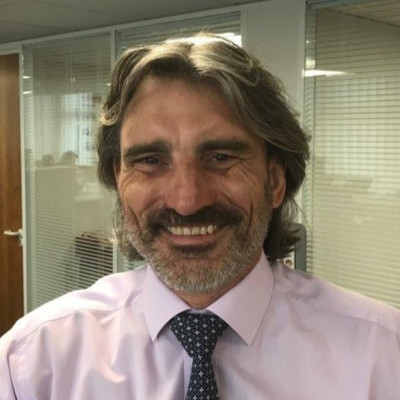
Jerome Budin
Wastewater Consultant
Book a meeting at your convenience to talk to one of our specialists about your wastewater issues – or send us an enquiry.
Fish are farmed either onshore – that is to say, in land-based (RAS) growing environments (often indoors) that mimic ‘wild’ conditions – or offshore, in large nets or containments placed in the sea.
In the latter case, these nets are normally grouped together in deep water so the current washes away the inevitable sinking debris from a large concentration of fish.
Both have advantages and disadvantages, and both can hugely benefit from the sort of water treatment that Arvia’s Nyex™ systems can deliver.
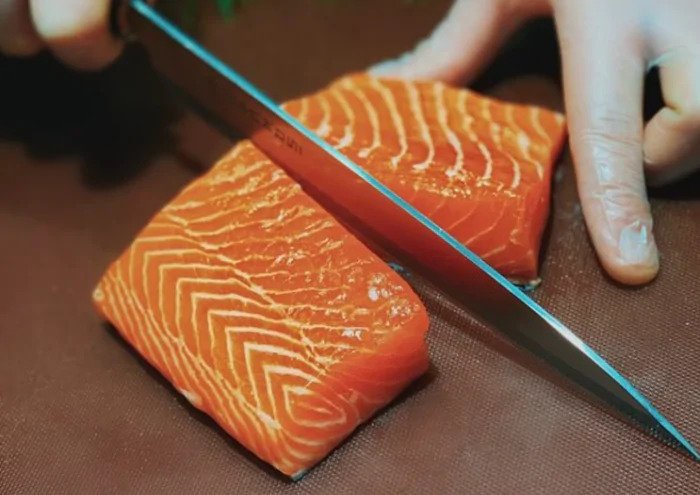
We know that a growing concern in the aquaculture industry is off-flavour. Fish is an essential food source so if it doesn’t taste good then you risk losing valuable business. Geosmin is a common off flavour compound, and it can result in an unpleasant earthy flavour that consumers do not like in fish such as salmon and carp. This musty taste will often be taken as an indicator of a poor quality product, driving prices down. We can protect you and your crop value, as our technology very effectively removes geosmin and other compounds that affect the taste and quality of fish.
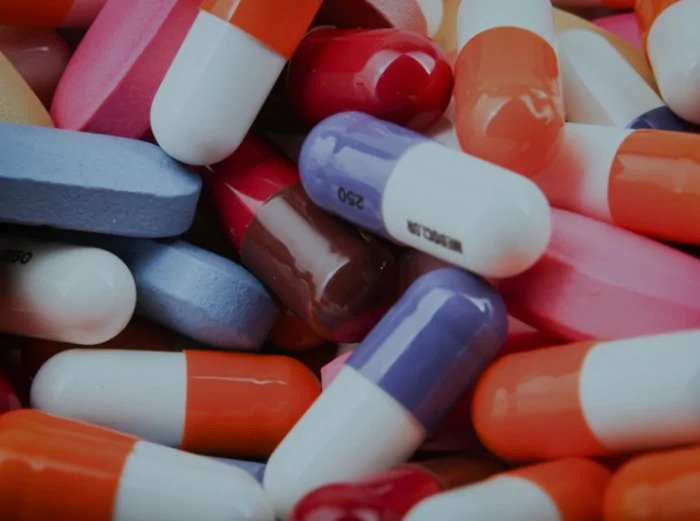
Within the aquaculture industry, antibiotics are the most applied chemical and are used to inhibit pathogen growth. These pathogens can harm the fish and stunt their growth, leading to a poorer quality product meaning you have to sell your fish for a reduced price. We know that the use of antibiotics and other medicines is inevitable when raising live animals. We can help you deal with these chemicals, meaning that you can take care of your fish but you don’t have to worry about antibiotics getting into the environment, something that could massively harm your company’s reputation.
Our technology uniquely combines adsorption and oxidation. Ordinarily, adorbants reduce in effectiveness as they are used and become more saturated. However, our innovative media is actually regenerated in situ while your water is being treated! This means there is no need to send spent adsorbents off site to regenerate or dispose of them. This saves you precious time and money – especially in the context of off-shore applications, where replacing large quantities of carbon requires time at dock and high expense. Also, by regenerating in-situ, you are greatly reducing the chance of biofilm formation, common with activated carbon, which ensures long term performance and reduces cleaning requirements.
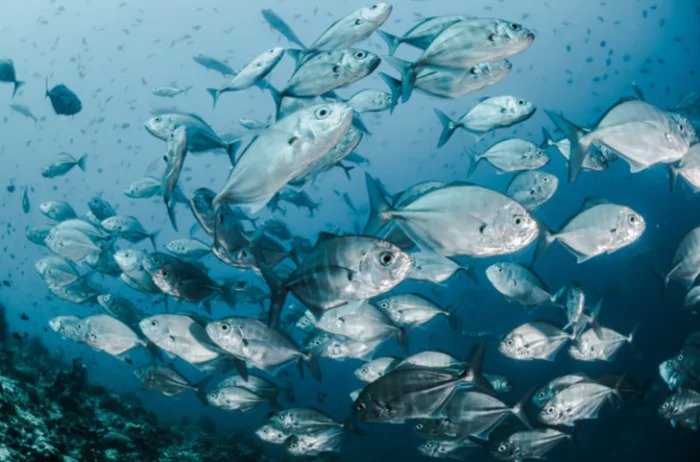
Much like antibiotics, pesticides are a necessary part of modern aquaculture. In order to raise the highest value fish, pests such as sea lice must be kept at bay. It’s well known that an outbreak of sea lice can result in entire batches of fish being completely unmarketable, so pesticides/insecticides are deployed. Water which has been dosed with chemicals needs to be treated before discharge to the ocean or other water sources. Our technology can clean this water to ensures that any pesticides will not make their way into the environment, thus protecting your reputation and the environment while you protect your fish.
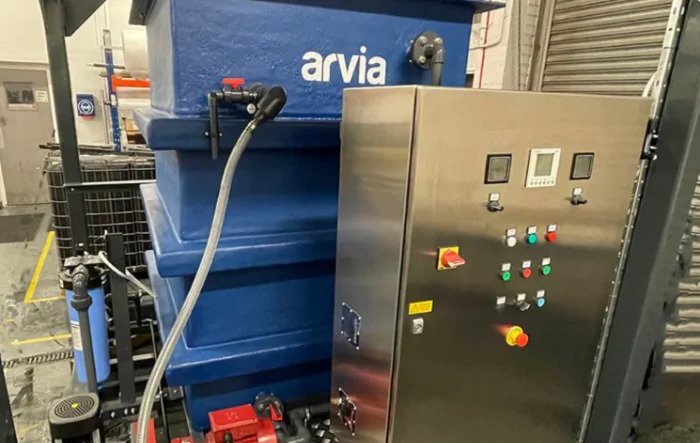
We know that space can be very limited in both on and off shore farms, so we have developed a system that takes up as small a footprint as possible whilst still delivering an efficient solution. Our systems are modular, meaning that we can minimise the space they take up whilst not compromising on their efficiency, and we can also supply fully integrated containerised solutions for ease of use in off-shore applications. This key part of their design also means that the system can grow or shrink as needed to match your needs so you are never paying for more than you need. Additionally, our system can simply be turned on and off, so you never have to run it when it’s not needed.